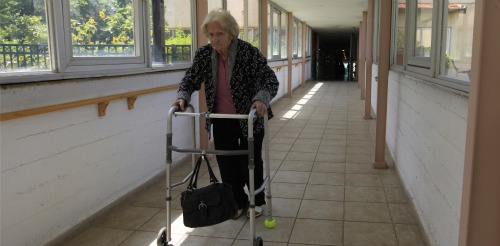
Researchers from Tel Aviv University are working on a nasal two-in-one vaccine that could protect against both Alzheimer’s disease and stroke. The proposed vaccine appears to repair vascular damage in the brain by rounding up “troops” from the body’s own immune system.
According to an article soon to appear in the journal Neurobiology of Aging, the vaccine not only has a preventative function but could also help fight Alzheimer’s symptoms that are already present.
This breakthrough is of extraordinary interest to American pharmaceutical makers, given that one in eight Americans will develop Alzheimer’s disease – and its related devastating memory loss — at some point in life. And because Alzheimer’s is often associated with vascular damage in the brain, many patients are also at great risk of a potentially fatal stroke.
A natural way to fight Alzheimer’s
“Using part of a drug that was previously tested as an influenza drug, we’ve managed to successfully induce an immune response against amyloid proteins in the blood vessels,” says Dr. Dan Frenkel of Tel Aviv University’s Department of Neurobiology, who led the study, and collaborated on the project with Prof. Howard L. Weiner of Brigham and Women’s Hospital in Boston, a teaching affiliate of Harvard Medical School.
“In early pre-clinical studies, we’ve found it can prevent both brain tissue damage and restore cognitive impairment,” he adds.
Modifying a vaccine technology owned by multinational drug company GlaxoSmithKline, this new therapeutic approach activates a natural mechanism that fights against vascular damage in the brain.
As Frenkel explains it, the vaccine activates large numbers of macrophages, large proteins that “swallow” foreign antigens and essentially clear out the damaging build-up of waxy amyloid proteins in an affected brain’s vascular system.
Research using mice showed that once these waxy proteins are swept away, further damage can be prevented, and existing damage due to a previous stroke can be repaired. So far, the vaccine has shown no signs of toxicity in animal models.
A new road to an Alzheimer’s cure?
Could the breakthrough lead to both a vaccine and a long-sought cure for Alzheimer’s disease?
“It appears that this could be the case,” says Frenkel, who worked on the study with his doctoral student Veronica Lifshitz and master’s degree students Ronen Weiss and Tali Benromano. “We’ve found a way to use the immune response stimulated by this drug to prevent hemorrhagic strokes which lead to permanent brain damage.”
MRI specialist Prof. Yaniv Assaf and his Ph.D. student Tamar Blumenfeld-Katzir carried out object recognition experiments to test the mice’s cognitive functioning before and after administration of the vaccine. They found that those mice treated with the new vaccine returned to normal behavior. MRI screenings also confirmed that the vaccine prevented further vascular damage – which is significant, because vascular dementia is found in 80 percent of all people with Alzheimer’s.
Frenkel believes that this revolutionary natural approach, when applied to a human test population, will be able to prevent the downward health spiral of Alzheimer’s and dementia. The vaccine could be given to people who are at risk, those who show very early symptoms of these diseases and those who have already suffered strokes to repair any vascular damage.












